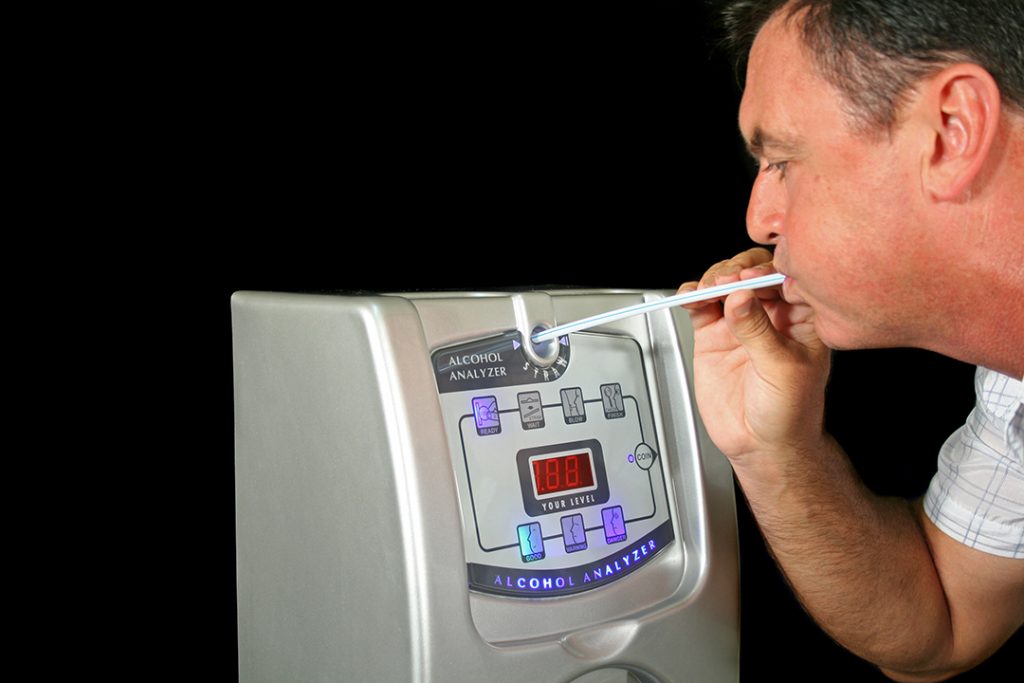
Ignition interlocks use breath-analysis technology to prevent intoxicated drivers from starting their vehicles. They have been shown to reduce drunk-driving recidivism while installed significantly.
In the state of Colorado, interlocks have been mandatory for all drunk-driving convictions since 2009. This requirement aims to promote road safety and prevent repeat offenses by ensuring that individuals convicted of driving under the influence (DUI) cannot operate a vehicle while intoxicated.
Interlock systems are designed to deter and prevent drunk driving by requiring drivers to provide a breath sample before starting their vehicle. If the device detects alcohol above the pre-set limit, the vehicle’s ignition is disabled, thereby preventing the driver from operating the vehicle while impaired.
Installing an interlock device involves professional interlock services provided by authorized interlock companies. These companies specialize in interlock installation, repair, and maintenance to ensure the system’s proper functioning.
The use of ignition interlocks aims to protect not only the individuals driving under the influence but also other road users who may be at risk due to impaired driving. By effectively preventing intoxicated drivers from starting their vehicles, interlocks contribute to a safer road environment and a reduction in alcohol-related accidents.
In the following sections, we will explore the effectiveness of ignition interlock laws, the effects of interlock installation, the impact on fatal crashes, and implementation challenges, and conclude with the benefits of utilizing interlock systems.
The Effectiveness of Ignition Interlock Laws
A study conducted by the National Highway Traffic Safety Administration found that requiring ignition interlocks for all drunk-driving convictions resulted in a 15% decrease in alcohol-involved crash deaths compared to states with less stringent requirements. The adjusted rate of alcohol-involved crash deaths in states with universal interlock requirements was 4.7 per 100,000, compared to 5.5 in states without, representing a reduction of 0.8 deaths per 100,000 per year.
Effects of Ignition Interlock Installation
Multiple studies have evaluated the effects of ignition interlock installation on DUI recidivism and crashes.
- Interlocks can reduce recidivism by 50% to 90% while installed.
- Some studies have reported decreases in crashes among interlocked drivers.
Additionally, studies have shown that interlocks are effective in preventing intoxicated driving and have the potential to reduce drunk-driving fatalities if installed on all vehicles significantly.
The Impact of State Interlock Laws on Fatal Crashes
The state of Colorado has taken significant steps in reducing fatal crashes involving alcohol-impaired drivers by implementing comprehensive interlock laws. These laws require all individuals convicted of drunk-driving offenses to install interlock devices in their vehicles. The installation of these devices has played a vital role in enhancing road safety and preventing tragic accidents.
Studies have shown that ignition interlock devices are highly effective in reducing the risk of drunk-driving recidivism and minimizing the number of alcohol-related fatalities. By enforcing the installation of interlock systems, Colorado has made significant progress in combating the devastating consequences of impaired driving.
While implementing interlock laws in Colorado has undoubtedly positively impacted, the specific reduction in fatal crash rates because of these measures warrants further analysis. Ongoing research and comprehensive studies are essential to understanding the true extent of the interlock laws’ effectiveness in preventing fatal crashes and saving lives.
Implementation and Enforcement Challenges
While ignition interlocks have proven to be effective in reducing drunk-driving recidivism and preventing intoxicated driving, there are challenges in their implementation, enforcement, and monitoring. These challenges include:
- Ensuring compliance with interlock requirements: One of the main challenges is ensuring that individuals convicted of drunk driving comply with the mandatory installation of interlock devices in their vehicles. Some offenders may attempt to bypass or avoid installing the devices, which undermines the effectiveness of the interlock program.
- Maintaining accurate and up-to-date records: It is crucial to maintain accurate records of all interlock installations, removals, repairs, and maintenance. This ensures that authorities have the necessary information to monitor compliance, track violations, and enforce interlock requirements.
- Addressing device tampering or circumvention: Certain individuals may attempt to tamper with or circumvent the interlock devices, such as using a breath sample from someone else to start the vehicle or attempting to disable the device. Close monitoring and vigilance are necessary to prevent such actions and maintain the integrity of the interlock program.
- Monitoring and regulating interlock providers: States must establish robust systems to monitor and regulate interlock service providers. This includes ensuring that the devices are installed correctly, calibrated accurately, and maintained in proper working condition. Regular inspections and audits of interlock providers are essential to maintain quality control and uphold the credibility of the interlock program.
Addressing these implementation and enforcement challenges is vital to maximize the effectiveness of ignition interlocks in reducing drunk-driving incidents and protecting public safety.
Impact of Ignition Interlocks on DUI Rates Conclusion
Ignition interlocks are a critical life-saving technology that has proven effective in preventing drunk-driving recidivism and reducing alcohol-involved crash deaths. The implementation of universal interlock requirements for all drunk-driving convictions has resulted in significant reductions in fatalities on the roads.
By requiring the installation of interlock devices in vehicles, individuals convicted of drunk-driving offenses are forced to interlock their keys with sobriety. This acts as a deterrent and prevents them from starting their vehicles if they are under the influence of alcohol.
With the continued improvement of interlock services and advancements in interlock technology, it is crucial to promote the widespread use and effectiveness of interlock systems to enhance road safety further and reduce the incidence of drunk-driving offenses.
Impact of Ignition Interlocks on DUI Rates FAQs
What is an ignition interlock device?
An ignition interlock device is a device that uses breath-analysis technology to prevent intoxicated drivers from starting their vehicles.
How effective are ignition interlocks in reducing drunk-driving recidivism?
Ignition interlocks have been shown to reduce drunk-driving recidivism by 50% to 90% while installed.
What is the impact of universal interlock requirements on alcohol-involved crash deaths?
Requiring ignition interlocks for all drunk-driving convictions resulted in a 15% decrease in alcohol-involved crash deaths compared to states with less stringent requirements.
Are ignition interlocks effective in preventing intoxicated driving?
Yes, studies have shown that ignition interlocks are effective in preventing intoxicated driving and have the potential to reduce drunk-driving fatalities if installed on all vehicles significantly.
Do ignition interlocks reduce DUI offenses among interlocked drivers?
Yes, studies have found that ignition interlocks can reduce repeat DUI offenses by a significant percentage.
How widespread are the ignition interlock laws in Colorado?
In Colorado, ignition interlocks have been mandatory for all drunk-driving convictions since 2009.
What are the implementation and enforcement challenges for ignition interlock laws?
Challenges include ensuring compliance with interlock requirements, maintaining accurate records, addressing device tampering or circumvention, and monitoring interlock providers.
What is the impact of ignition interlocks on fatal crash rates in Colorado?
The specific impact on fatal crash rates in Colorado requires further study and analysis.
